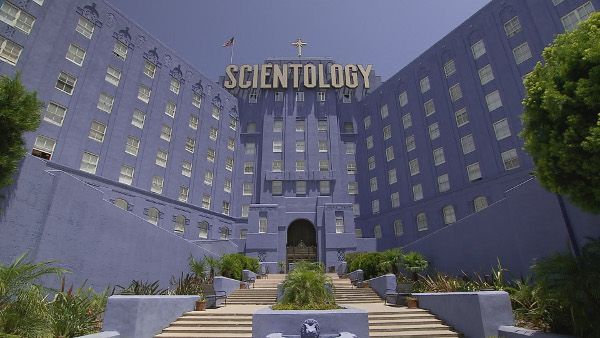Eye For Film >> Movies >> Going Clear: Scientology And The Prison Of Belief (2015) Film Review
Going Clear: Scientology And The Prison Of Belief
Reviewed by: Amber Wilkinson

The Church of Scientology has long had an uneasy relationship with Britain. Back in 1971, the government even commissioned the Foster Report to see whether regulation of its practices was required and, just this year, Louis Theroux has attempted to take on the Church in My Scientology Movie. Alex Gibney's documentary, although paying some lip service to the increased global reach of the 'religion' founded by sci-fi author L Ron Hubbard in the Fifties, focuses on the origins of the organisation and the personality of its founder, before tracking it chronologically, with a particular emphasis on its activities in the US.
The result is informative - and frequently worrying - although not particularly cinematic. You could get virtually as much out of this by simply listening to it, as I discovered when, watching it on an internet VoD stream, I only realised after three or four minutes that the picture had frozen while the soundtrack continued.
The Going Clear title refers to the name of the book by Lawrence Wright, on whose research this film is based. It also refers to the process through which Scientologists, through a considerable amount of what non-believers might term cod psychology - and the extraction of thousands of dollars in cash for the various 'courses' - achieve a state of grace. Throughout all of this, Gibney's contributors allege, runs a combination of religious Stockholm Syndrome, oppression, coercion and, if all that fails, harrassment and blackmail to keep members 'in' or, at the very least, stop them from speaking out.
The strength of Gibney's film lies in the heavyweight nature of his contributors. These aren't just people briefly under the thrall of LRH's teachings but long-standing members, many of whom spent decades as Scientologists and reached the upper echelons of the Church. The deal-breaker for many of them - including Hollywood filmmaker Paul Haggis (Crash, In The Valley Of Elah) - was what they claim are the increasingly megalomanic activities of David Mascivige, the man who took over from LRH at the top of the organisation. One contributor brands him "paranoid", while another says: "When he had absolute control, he went absolutely bonkers".
Other portions of the film address Scientology's most famous adherents - Tom Cruise and John Travolta - exploring their association with and impact on its profile. The two men have entirely different public personas when it comes to talking about the Church. Cruise is all smiles and fervour, with allegations about his relationships running quite deeply while at the same time feeling curiously piecemeal - first wife Nicole Kidman is included in detail, yet there is nothing on his second spouse Katie Holmes. Travolta, meanwhile, is more quietly adherent to his faith, although this film contains implied allegations of coercion.
It is the way that Scientology seems to affect mental state of those involved that is perhaps the most damning - and far more interesting than the rather lengthy discussion of the Church's US tax status. Former members talk about the way they lost everything from their sense of self to members of their family as a result.
Throughout, title cards outline rebuttals of information by the Church, further proof that considerable care has gone into this expose. The result is a solid and chilling primer but one that is happy to simply act as an illustration of what has been written on the page rather than expand it into something more cinematic.
Reviewed on: 28 Oct 2015














